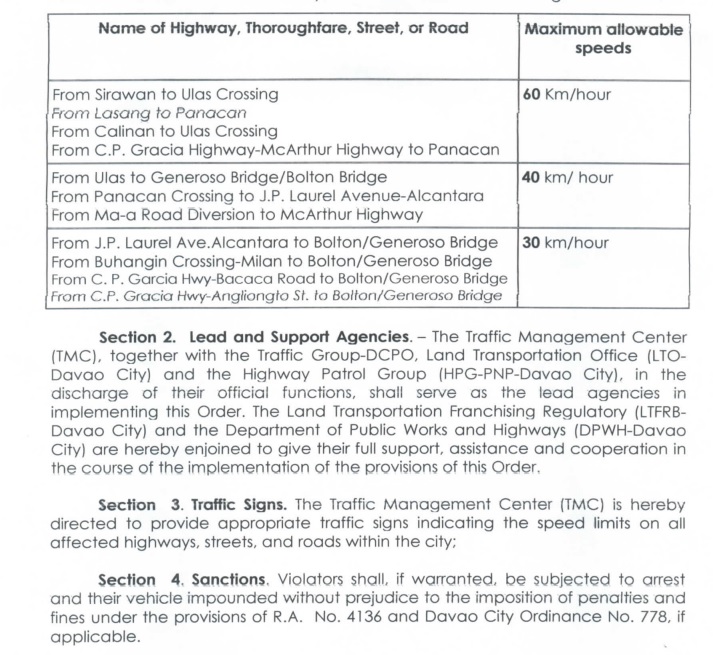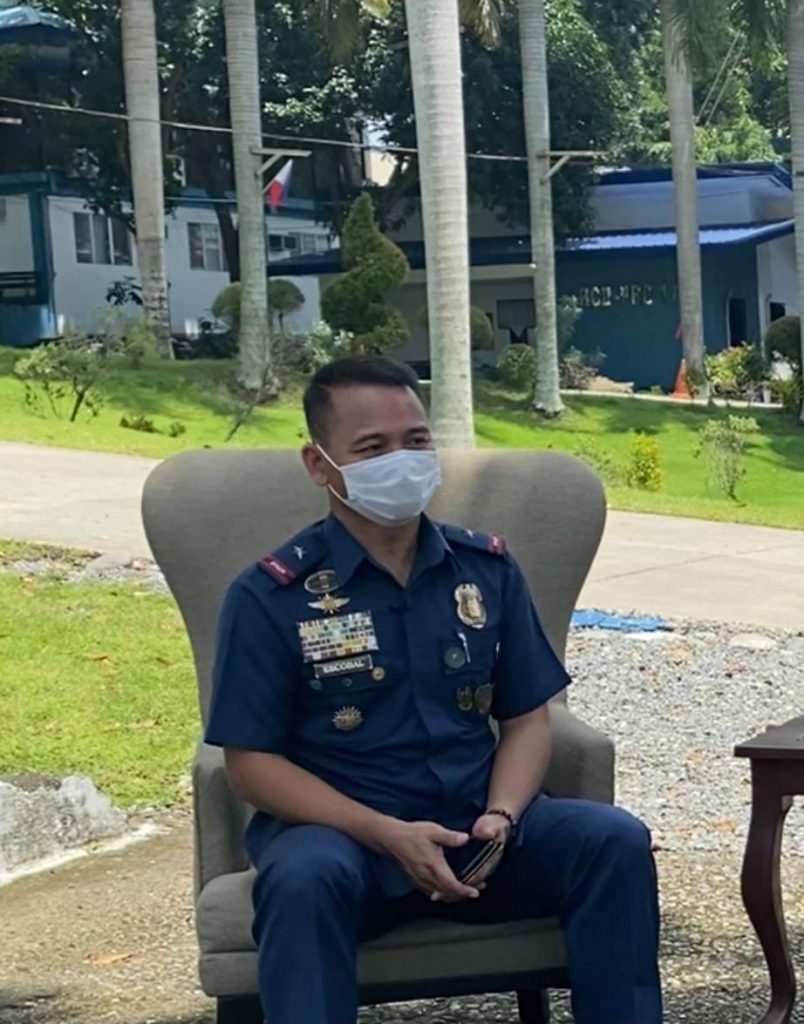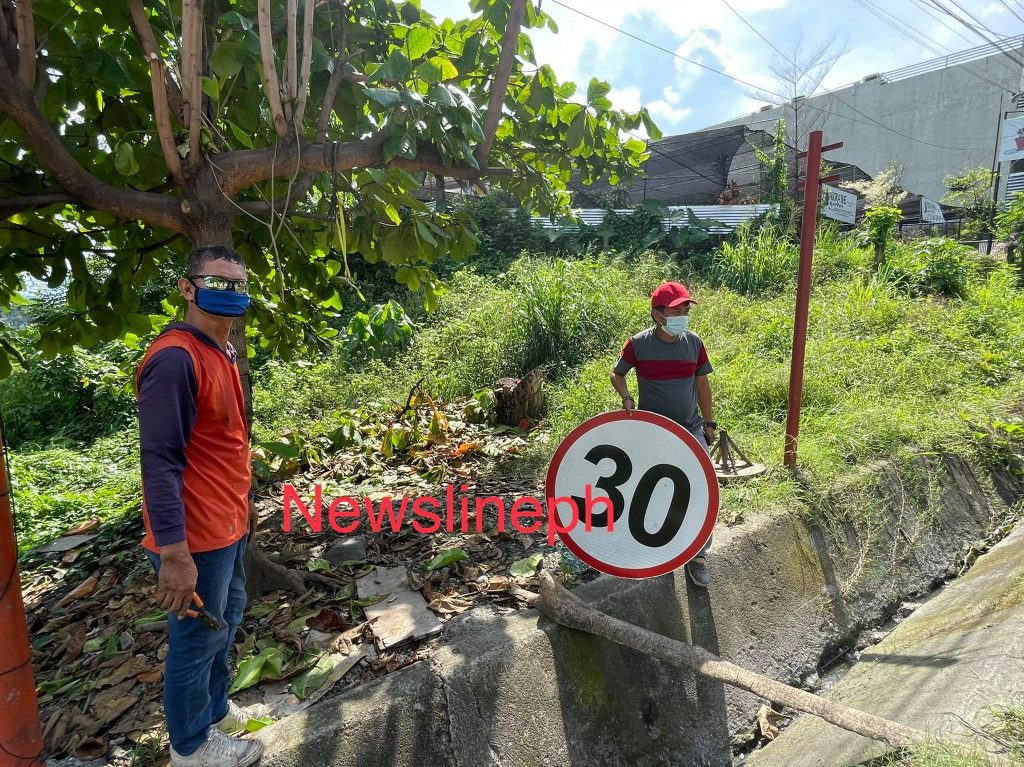DAVAO CITY — On Sunday, June 6, motorists plying the Philippine-Japan Friendship route were apprehended for exceeding 30 kilometers per hour along a downhill section of the highway, causing chaos and outrage on social media.
Under Republic Act 4136, open roads will have a speed limit of 80 kilometers per hour (kph) for light vehicles and 50 kilometers per hour (kph) for heavy vehicles, through streets will have a speed limit of 40 kilometers per hour (kph) for light vehicles and 30 kilometers per hour (kph) for heavy vehicles, and crowded streets will have a speed limit of only 20 kilometers per hour (kph) for all types of motorized traffic.
However, following a series of accidents along the Diversion route that resulted in the loss of dozens of lives, then-Davao City Mayor and now-President Rodrigo Duterte signed an Executive Order on October 29, 2013 lowering the speed limit along the diversion road to 60 kph.

On Sunday, Newsline.ph came across members of the PNP-TEU who flagged down and arrested over a hundred motorists, and the live coverage went viral, garnering over 2.2 million views as of this writing, with 14,000 shares and 15,000 comments, the most of which were from irate motorists.
In an interview, Corporal Sadji Maceda, one of the operating TUE personnel, said they were enforcing the 30-kilometer-per-hour speed limit along the downhill stretch from a nearby subdivision gate to the Matina Pangi Crossing, as evidenced by signage installed by the Department of Public Works and Highways in 2013.
On June 10, Philippine National Police XI Regional Director Filmore B. Escobal ordered the administrative relief of Police Col. Nolan Naquid, the city’s PNP Traffic Enforcement Unit (TEU) chief, as well as four other officers implicated in the shady arrest.

Escobal said there was failure on the part of Naquib to brief his personnel about the speed limit before the operation “Dapat kasi nag-briefing sila para maayos ang operation.”
But it was Escobal who called Regional Director of the Department of Public Works and Highways Rey Peter Gille to certify that the DPWH was the one who put the 30/kph marker.
According to Escobal, during an inter-agency meeting in 2013, road stakeholders agreed to drop the speed limit on the downhill to 30 kph, but the agreement was not made public and the signpost was installed.
Naquib apologized for the act and accepted full responsibility for the questionable operations; he even requested those arrested to preserve their citation tickets, claiming he would work with the Land Transportation Office to resolve the matter, but motorists refused to stop. They want the TEU to be held accountable for the wrongdoing.

Escobal said there was lapse in the implementation of the sped limit “We need to correct it and we need to investigate it.”
On June 10, he ordered Davao City Police Office Director John Kirby B. Kraft to conduct an investigation.
“Pending result of the investigation, I am ordering the relief of Col Naquib and his four personnel, so they cannot influence the investigation,” Escobal told Newsline.ph, “It is an administrative relief.”
On the same day, the DPWH also took down the controversial 30/kph signage. -Editha Z. Caduaya
